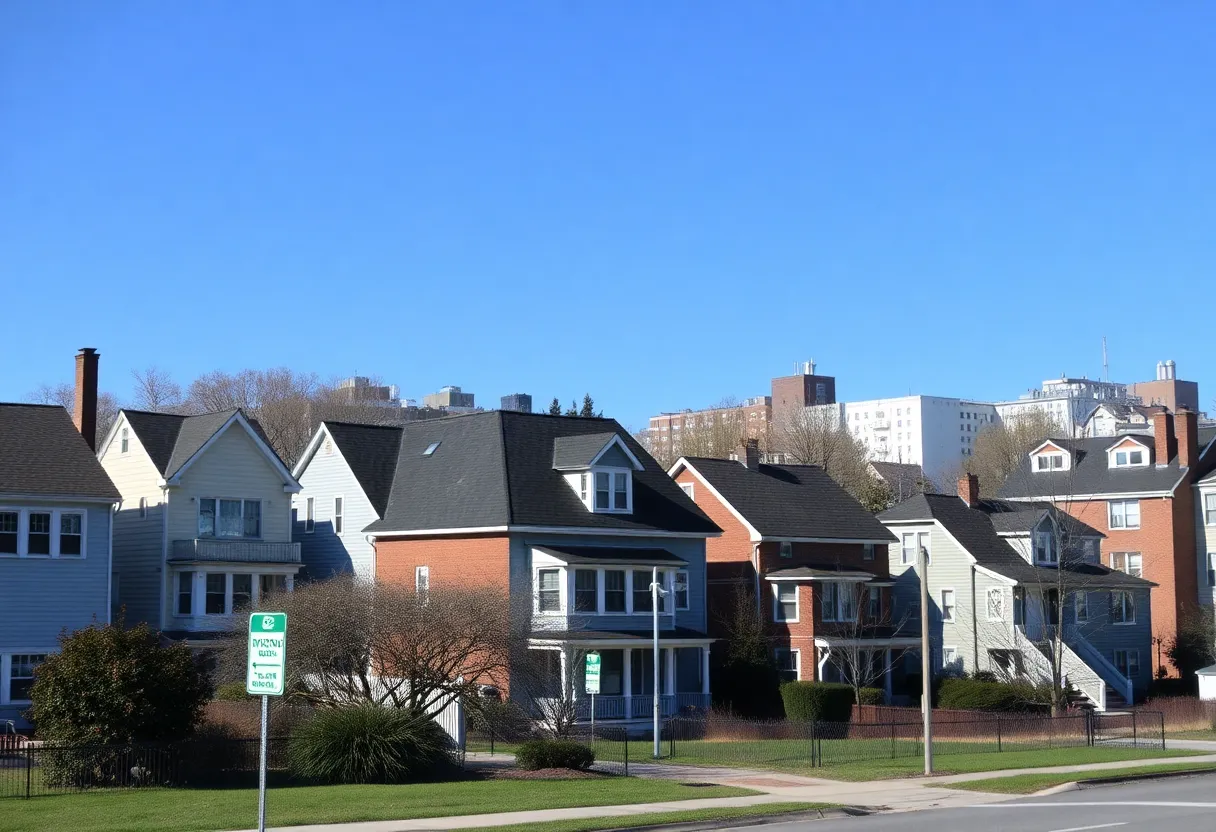News Summary
A recent report has ranked Massachusetts 50th in housing affordability, attributing its F grade to insufficient home construction and complex zoning laws. With a median home price significantly outpacing household incomes, the state faces a critical crisis in accessible housing. Efforts, such as the Affordable Homes Act, aim to address these challenges by increasing housing production. However, the need for bold reforms and innovative solutions remains urgent as the gap in affordable housing persists for low-income families.
Boston, Massachusetts – A recent report by Realtor.com has revealed that Massachusetts has received an F grade in housing affordability, ranking 50th nationwide. This poor performance is attributed to a lack of sufficient home construction and affordability, further exacerbating the challenges faced by potential homeowners in the state.
The report defines affordable housing as a home where the mortgage payment represents 30% or less of a household’s monthly income. Currently, the median listing price for homes in Massachusetts stands at $781,758, while the median household income is at $96,584. These figures demonstrate the growing difficulty for residents seeking to achieve homeownership in light of skyrocketing prices and elevated mortgage rates.
Nationally, a housing supply gap of approximately 4 million homes has emerged since the Great Recession due to a decade of underbuilding. The report indicates that only 18 states, primarily in the Midwest and South, boast affordable median home prices. Conversely, Massachusetts joins Rhode Island and Connecticut in receiving failing grades, while states like Iowa, Texas, and South Carolina earned A’s for their housing policies and construction rates.
In Massachusetts, the report highlights the impact of complex zoning laws on housing affordability. With 16 zoning districts per jurisdiction, each having an extensive 131 pages of zoning codes, approximately 76% of the state’s 7 million acres are subject to such regulations. Alarmingly, just 12% of these zoned acres permit multi-family housing by right, adding to the difficulties for builders and potential homeowners alike.
The high costs of compliance with these complex regulations are typically transferred to homebuyers, further limiting their options. In early 2024, the situation worsened, with housing permits in Greater Boston dropping by 38%, marking the lowest housing start numbers since 2013.
Efforts have been made to address the affordability crisis. In 2022, Boston Mayor Michelle Wu issued an executive order to streamline approvals for affordable housing projects. Additionally, Governor Maura Healey signed the Affordable Homes Act, aimed at enabling accessory dwelling units and reforming zoning regulations statewide. However, the effectiveness of these measures remains to be seen, as the housing market continues to face significant challenges.
The report notes that if fully enacted, the Affordable Homes Act could lead to the production and preservation of over 65,000 homes within the next five years. Massachusetts has also implemented a housing production law that seeks to generate 222,000 new housing units over the next decade. Nevertheless, a significant gap persists in affordable housing available for low-income households, with only enough units existing for 32% of this demographic.
Furthermore, despite the aforementioned challenges, single-family home sales in Massachusetts rose by 3% in early 2025 compared to the previous year, with year-to-date median sale prices climbing by 5.3% to reach $585,000.
As Massachusetts grapples with these pressing housing affordability issues, the report urges government officials to pursue bold reforms and advocate for increased home construction as a crucial solution. It also emphasizes the need for zoning reforms and innovative housing solutions to meet community needs effectively.
The housing affordability crisis in Massachusetts underlines the extensive challenges faced by the state, pointing to the necessity for actionable strategies to increase accessible housing alternatives for its residents.
Deeper Dive: News & Info About This Topic
- Cape Cod Times: Realtor.com Report on Massachusetts Housing Affordability
- Boston.com: Massachusetts Earns an F on Homebuilding and Affordability
- Bloomberg: Massachusetts Needs 222,000 Housing Units by 2035
- Archinect: Zoning and Affordable Housing Crisis in Cambridge, Massachusetts
- Boston Globe: Massachusetts Housing Affordability
- Wikipedia: Housing Affordability
- Google Search: Massachusetts Housing Crisis
- Google Scholar: Massachusetts Housing Affordability
- Encyclopedia Britannica: Housing
- Google News: Massachusetts Housing News

Author: STAFF HERE BOSTON WRITER
The BOSTON STAFF WRITER represents the experienced team at HEREBoston.com, your go-to source for actionable local news and information in Boston, Suffolk County, and beyond. Specializing in "news you can use," we cover essential topics like product reviews for personal and business needs, local business directories, politics, real estate trends, neighborhood insights, and state news affecting the area—with deep expertise drawn from years of dedicated reporting and strong community input, including local press releases and business updates. We deliver top reporting on high-value events such as Boston Marathon, Head of the Charles Regatta, and Boston Harborfest. Our coverage extends to key organizations like the Greater Boston Chamber of Commerce and Associated Industries of Massachusetts, plus leading businesses in finance, biotech, and insurance that power the local economy such as Fidelity Investments, Biogen, and Liberty Mutual Insurance. As part of the broader HERE network, we provide comprehensive, credible insights into Massachusetts's dynamic landscape.



